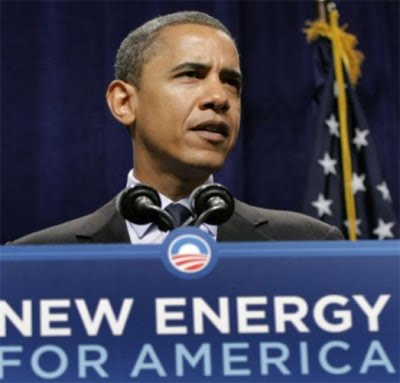This is a guest post by Glenn Hurowitz, senior fellow at the Center for International Policy. It originally appeared on Grist.org, and is reprinted here with permission.
Everything you’ve heard about the tar sands and energy security is wrong
by Glenn Hurowitz
If there’s a single idea that the oil industry has peddled to persuade the Obama administration to approve the controversial Keystone XL tar-sands pipeline, it’s this: Tar-sands oil might be more polluting than even dirty old regular oil, but it’s better to get our energy from our ally Canada than from unstable oil suppliers in the Middle East or elsewhere.
In practice, the opposite is true: Drilling in North America is the single greatest threat to our nation’s energy security.
Here’s the reality: Protecting the United States’ energy security means keeping our continent’s oil in the ground for when we need it in an emergency. The United States and Canada combined hold less than 5 percent of the world’s proven oil reserves. Thanks in part to expanded domestic drilling during the Obama administration, we’re depleting those reserves at a high rate. That means we have far less oil to fall back on in the event of true emergency, like an oil embargo or a major war when access to foreign oil supplies becomes difficult or even impossible. If we’re really concerned about security, tar-sands oil should be a last-gap, man-the-barricades option – something we as a society hope we never have to use. That’s true to an extent for our domestic supplies of oil in general, whether offshore Arctic oil or the dregs left over at the bottom of the “stripper wells” that dot the Great Plains. We should leave them aside now, and hope that by the time we get into a serious security pickle, we’ve created a 100 percent clean energy economy that avoids the awful choice pundits seem to love to imagine between security, growth, and a living planet.
To understand how urgent it is that we curtail domestic drilling, consider this: If the United States were cut off today from all sources except Canada, we’d have only eight years left at current consumption levels. And that amount gets lower every day as the government issues additional domestic drilling leases.
Looking at domestic production as a threat to national security rather than something that boosts it may seem to turn conventional wisdom on its head, but in fact it’s how domestic oil drilling was viewed almost as soon as large Middle East supplies came online in the post-World War II years.
Following this “conservation theory,” the federal government and others pushed hard to tap new Middle Eastern oil supplies, primarily so we wouldn’t deplete our own. “If we ever got into another World War it is quite possible that we would not have access to reserves held in the Middle East, but in the meantime use of those reserves would prevent the depletion of our own, a depletion which may be serious within the next fifteen years,” wrote powerful World War II Navy Secretary James Forrestal, summarizing the postwar security consensus.
It’s important to contrast this depletion reality with the old canard that the oil industry and its backers continue to push: that drilling domestically somehow reduces the flow of money to the Middle East and other unstable oil suppliers. In practice, basic oil-industry economics show the opposite. Because Middle Eastern and Venezuelan oil is so much cheaper to produce and more plentiful than remaining domestic oil reserves, those countries can almost always outcompete domestic U.S. competitors and still maintain their enormous profit margins and high levels of production. Saudi and Iraqi oil, for instance, costs just $4-$6 per barrel to produce with another $2-$3 tacked on for transportation costs (costs are similar for Iranian oil). Production costs for tar-sands oil clock in at a minimum of $30 per barrel
Of course, there’s no doubt that our addiction to oil props up petrocracies and funds terror groups. But expanding domestic production, especially through carbon-intense tar-sands development, will do little or nothing to change that even as it imposes serious environmental damage on our continent’s great natural treasures and worsens climate change. What we need to do instead is move as rapidly as possible to get off oil entirely by fully implementing and further tightening the Obama administration’s strong fuel-efficiency standards, putting a price on carbon pollution, ending oil subsidies, electrifying our vehicle fleet with clean energy, boosting mass transit, and using the full force of our diplomacy to get other major consuming countries like China to do the same. That will create true American energy security without setting off a carbon bomb that threatens the entire planet, USA very much included.
Subscribe to our newsletter
Stay up to date with DeSmog news and alerts







